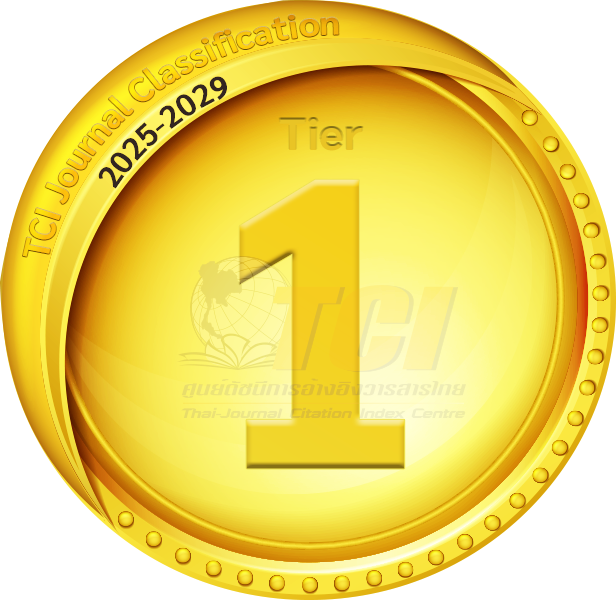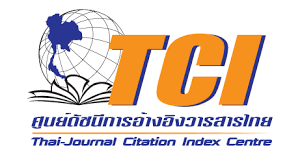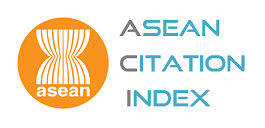Investigating the Needs and Challenges with regard to English Communicative Competencies in the Thai Hospitality Industry
- Mongkolchai Tiansoodeenon, Faculty of Liberal Arts, Rajamangala University of Technology Thanyaburi, Pathum Thani 12110, Thailand , Corresponding author, E-mail: Mongkolchai_t@rmutt.ac.th
- Benjawan Rungruangsuparat, Faculty of Liberal Arts, Rajamangala University of Technology Thanyaburi, Pathum Thani 12110, Thailand
- Sarochrus Tarapond, Faculty of Liberal Arts, Rajamangala University of Technology Thanyaburi, Pathum Thani 12110, Thailand
Abstract
This study aimed to investigate the need for communicative competencies in the hospitality industry, including hotel, tourism, and aviation, in Thailand, and problems with regard to the use of English in the industry. A total of 233 participants took part in the research: 70 from the hotel industry, 72 from the tourism industry, and 91 from the aviation industry. They were recruited using purposive sampling technique, and a mixed-methods research design was employed. To collect data, a Likert-scale questionnaire relating to English communicative competency in hospitality was used. Semi-structured interviews were then piloted and used. A backtranslation technique was employed to ensure the accuracy of the translation from English to Thai. The value of the alpha coefficient's reliability for the questionnaire was 0.85. The quantitative data was analyzed using percentages, means, and standard deviations, while the semi-structured interview transcripts were analyzed using content analysis. The findings revealed that the most significant communicative competencies in the hospitality industry in order of importance are interactional competency, strategic competency, and socio-cultural competency. The problems associated with using English in the hospitality industry included cultural differences and technical vocabulary. Moreover, awareness of the power of non-verbal language is perceived as being equally important for communicative competency.
Keywords: needs analysis, English communicative competency, hospitality industry
References
Al-Ababneh, M. M. (2017). Service quality in the hospitality industry. Journal of Tourism and Hospitality, 6(1), Article e133. https://doi.org/10.4172/2167-0269.1000e133
Allen, I. E., & Seaman, C. A. (2007). Likert scales and data analyses. Quality progress, 40(7), 64-65.
Alomoush, O. I. S., & Al-Na’imat, G. K. (2018). English as the lingua franca in visual touristic Jordan: The case of Petra. International Journal of Applied Linguistics and English Literature, 7(4), 1-13. https://doi.org/10.7575/aiac.ijalel.v.7n.4p.1
Bachman, I. F. (1990). Fundamental considerations in language testing. New York, US: Oxford University Press.
Bas Collins, A. (2007). Human resources: a hidden advantage?. International Journal of Contemporary Hospitality Management, 19(1), 78-84. https://doi.org/10.1108/09596110710724189
Bernstein, J. D., & Woosnam, K. M. (2019). Same same but different: Distinguishing what it means to teach English as a foreign language within the context of volunteer tourism. Tourism Management, 72, 427-436. https://doi.org/10.1016/j.tourman.2019.01.010
Canale, M., & Swain, M. (1980). Theoretical bases of com-municative approaches to second language teaching and testing. Applied linguistics, 1(1), 1-47. https://doi.org/10.1093/applin/1.1.1
Chewwasung, K. (2020). Model of Customer experience management in Thai full-service restaurant. [Doctoral dissertation], National Institute of Development Administration. NIDA Wisdom Repository.
Dhyani, A., Gairola, V., & Dimri, R. P. (2022). A need analysis on English language skill sets required in hospitality sector. Journal of Positive School Psychology, 6(5), 731-740.
Firharmawan, H., & Andika, A. (2019). Evaluating English training program for the local people of Kampung Ng Inggris Kebumen based on CIPP. Cakrawala Jurnal Manajemen Pendidikan Islam Dan Studi Sosial, 3(1), 47-57.
Gałajda, D. (2012). The concept of communicative competence in language learning. In W. D. Gabryś-Barker (Ed.), Readings in second language acquisition (pp. 143-160). Wydawnictwo Uniwersytetu Śląskiego.
Ho, Y. Y. C. (2020). Communicative language teaching and English as a foreign language undergraduates’ communicative competence in Tourism English. Journal of Hospitality, Leisure, Sport & Tourism Education, 27, 100271. https://doi.org/10.1016/j.jhlste.2020.100271
Jeou-Shyan, H., Hsuan, H., Chih-Hsing, L., Lin, L., & Chang-Yen, T. (2011). Competency analysis of top managers in the Taiwanese hotel industry. International Journal of Hospitality Management, 30(4), 1044-1054. https://doi.org/10.1016/j.ijhm.2011.03.012
Jhaiyanuntana, A., & Nomnian, S. (2020). Intercultural communication challenges and strategies for the Thai undergraduate hotel interns. PASAA: Journal of Language Teaching and Learning in Thailand, 59, 204-235.
Jiang, L., & Alexakis, G. (2017). Comparing students' and managers' perceptions of essential entry-level management competencies in the hospitality industry: An empirical study. Journal of hospitality, leisure, sport & tourism education, 20, 32-46. https://doi.org/10.1016/j.jhlste.2017.01.001
Khuong, C. T. H. (2015). An Evaluation of English teaching and learning in tourism training programs in Vietnam. International Journal of Arts & Sciences, 8(6), 561-572.
Kongtham, I. (2020). Needs analysis on English language functions for hotel staff in Phuket Province. Sripathum Chonburi Academic Journal, 16(3), 13-22. https://www.chonburi.spu.ac.th/journal/booksearch/upload/1907-Isara%201.pdf
Mantra, I. B. N., Widiastuit, I. A. M. S. , Handayani, N. D., & Pramawati, A. A. I. Y. (2020). English language urgency for tourism and hospitality employees to boost global economy. Palarch’s Journal of Archaeology of Egypt, 17(7), 5458-5469.
Namtapi, I. (2022). Needs Analysis of English for Specific Purposes for Tourism Personnel in Ayutthaya. LEARN Journal: Language Education and Acquisition Research Network, 15(1), 409-439.
Office of the National Economic and Social Development Board. (2017). The twelfth national economic and social development plan. Retrieved January 2, 2023, from https://www.nesdc.go.th/ewt_dl_link.php?nid=9640
Prima, S. A. B., Hartono, D. A., & Riyanto, B. (2022). A study of perception of the importance of English Language Skills among Indonesian hotel employees. Journal of English for Academic, 9(1), 73-86. https://doi.org/10.25299/jshmic.2022.vol9(1).8972
Sermsook, K., Nakplad, R., & Jantawong, L. (2021). Problems and Needs Analysis of English for Tourism Industry: A Case of Hotel Staff in Phang Nga Province, Thailand. Education Quarterly Reviews, 4(3), 73-82. https://doi.org/10.31014/aior.1993.04.03.319
Suh, E., West, J. J., Shin, J. (2012). Important competency requirements for managers in the hospitality industry. Journal of Hospitality, Leisure, Sport & Tourism Education, 11(2), 101-112. https://doi.org/10.1016/j.jhlste.2012.02.005
Trang, B. T. T. (2015). Needs analysis of English language use in tourism: A case study of international travel companies in Vietnam [Unpublished master’s thesis]. College of Language Arts, I-Shou University.

Indexed in


Search